Other books by the author
Secrets of Successful Marriages
How to Discover Gods Will for Your Life
Wisdom: Your Key to Success
Choosing the Best: Living for What Really Matters
Romans: A Pentecostal Commentary
Ephesians: A Pentecostal Commentary
Galatians: A Pentecostal Commentary
Colossians and Philemon: A Pentecostal Commentary
1 & 2 Peter: A Pentecostal Commentary
James and Jude: A Pentecostal Commentary
1-3 John: A Pentecostal Commentary
PHILIPPIANS
AND TITUS
A Pentecostal Commentary
DR. MATTHEW N. O. SADIKU
Order this book online at www.trafford.com
or email orders@trafford.com
Most Trafford titles are also available at major online book retailers.
Copyright 2013 Dr. Matthew N. O. Sadiku.
All rights reserved. No part of this publication may be reproduced, stored in a retrieval system, or transmitted, in any form or by any means, electronic, mechanical, photocopying, recording, or otherwise, without the written prior permission of the author.
Unless otherwise stated, scripture quotations are from the
New International Version (NIV) of the Bible, used by
permission of Thomas Nelson Publishers.
Scripture quotations marked KJV are from the King James Version of the Bible.
Scripture quotations marked NKJV are from the New King James Version.
Scripture quotations marked TLB are from The Living Bible.
Scripture quotations marked RSV are from the Revised Standard Bible.
Copyediting by Kathie Scriven
This book is composed in Garamond
ISBN: 978-1-4669-9917-6 (sc)
ISBN: 978-1-4669-9919-0 (hc)
ISBN: 978-1-4669-9918-3 (e)
Library of Congress Control Number: 2013910649
Trafford rev. 06/25/2013
 www.trafford.com
www.trafford.com
North America & international
toll-free: 1 888 232 4444 (USA & Canada)
phone: 250 383 6864 fax: 812 355 4082
CONTENTS
To
Christopher and Christianah Falade
Earnest Christians are hungry for information that makes their Bible come alive. The Christian life can be described as getting to know God better every day. Every Christian should regularlydaily read the Word of God. We should find time for quiet time or personal devotion. The reason we have so many bad days is that we do not spend time with God. We must spend time with God if we want His blessings on our lives and we want to hear from Him.
For over 20 years I have been using commentaries in my daily devotion. The blessings derived from the commentaries is overwhelming. I am writing this commentary to share some of those blessings and lessons I have learned over the years.
This commentary provides verse-by-verse exposition and application on Philippians and Titus. (The reason for combining Philippians and Titus in one volume is that they are both short and written by Paul.) It is different from others in two respects. First, it is brief while some commentaries are wordy and verbose. This commentary does not delve into critical and exegetical details. Therefore, the limits of this commentary forbid that we consider all the views concerning any issue, but an attempt will be made to provide a brief, sound, yet scholarly, view. Second, it is Pentecostal in outlook. This implies that we generally adhere to the doctrine of biblical inerrancy and adopt a literalist approach to the interpretation of the Bible. Pentecostal doctrines include speaking in tongues, gifts of the Holy Spirit, signs and wonders, divine inspiration, divine healing, Christian prophets, and apostles today, to mention but a few. The early church was basically Pentecostal in nature, i.e. it exercised considerable freedom of the Spirit in its life and worship.
In order to provide a readable text, this commentary is based on the New International Version (NIV) translation. The commentary is for laymen, pastors, teachers, and students of the Word. It is designed to enrich your quiet time or personal study by making the commentary clear and simple. With the Bible in one hand and the commentary in the other, you will be able to unpack the truths of the Word of God. It is my prayer that this commentary brings you both delight and insight in understanding Gods Word.
I owe a great deal to all who have written on Philippians and Titus before me. It is my pleasure and honor to thank Livinus Maduka, Dr. Abayomi Ajayi-Majebi, and Dr. Linus Ojukwu for reviewing the entire manuscript. Special thanks are due for my wife for her constant support and prayer.
AB | Amplified Bible |
cf. | confer, compare |
ibid. | ibidem , in the same place |
KJV | King James Version |
LXX | Septuagint, the OT in Greek |
NASB | New American Standard Bible |
NIV | New International Version |
NKJV | New King James Version |
NLT | New Living Translation |
NRSV | New Revised Standard Version |
NT | New Testament |
OT | Old Testament |
RSV | Revised Standard Version |
PE | Pastoral Epistles |
TLB | The Living Bible |
v., vs. | verse, verses |
PART 1
PHILIPPIANS
Apart from Philemon, the epistle to the Philippians is the most personal of all of the Pauline epistles. The terms I, me, my, and myself appear about 120 times, making Philippians one of Pauls most personal epistles. Also, joy dominates the letter; the concept of joy or rejoicing appears 16 times in 4 chapters or 104 verses. The epistle has been called our joy in troubled times. To Paul, the church at Philippi was his joy and crown (4:1). Any believer who is feeling down or discouraged should study Philippians. This is recommended because there is no book in the Bible that is so filled with joy as Philippians.
Before we journey through this exciting letter, we should first consider some preliminary mattersauthorship, the recipient, the occasion, and the messageconcerning this letter.
Authorship
Philippians and Philemon are Pauls prison letters whose authorship is not seriously disputed. No serious objection to Pauline authorship of Philippians exists today. All evidence points to Paul as the author of the epistle. However, the letter has been termed spurious by F. C. Baur. His criticisms have been refuted several times by Bible scholars.
The only serious question of authorship concerns the integrity of Philippians. Dividing the book into multiple letters is the product of scholarly speculation. Some scholars believe that the present form of Philippians consists of two or three different letters written at different times. All the theories of multiple letters are based on imagination, not on textual evidence. The traditional position is that Philippians was composed as one letter. This remains the least problematic theory.
Paul means little, in contrast to his former name Saul, which means asked or prayed for. Luke makes a transition from using the Hebrew name Saul to the Roman name Paul in Acts 13:9. We know for sure that Paul was a Jew and was born in Tarsus, a city about 700 miles north of Jerusalem and capital of the Roman province of Cilicia (Acts 22:3). Pauls father was a Jew who migrated to Tarsus. He was a Pharisee. His son Paul was raised a Pharisee (Acts 23:6). Paul was born a Roman citizen, not a naturalized citizen. As a Jew, Paul learned the OT, the law and the traditions. As a Greek, he received typical Greek education comprising music, history, religion, philosophy, poetry, and science. Roman culture, Jewish culture, and Greek cultureall summed up in this one man and prepared him to write Philippians.
Next page
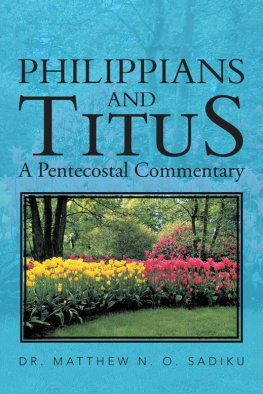
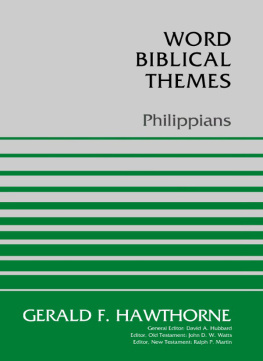
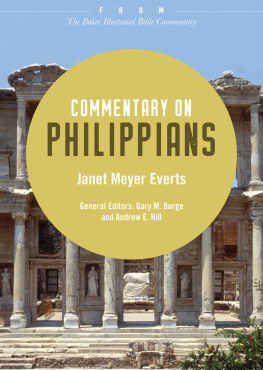
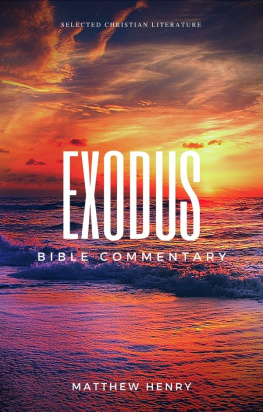
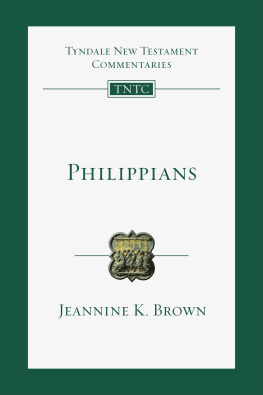

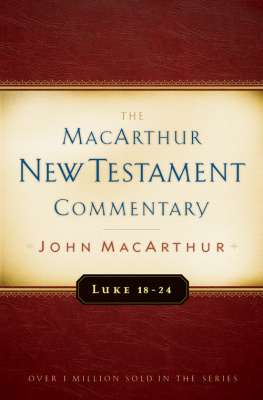
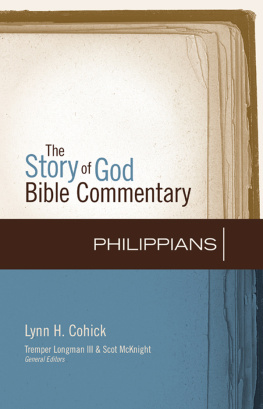
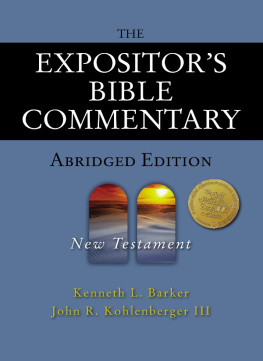
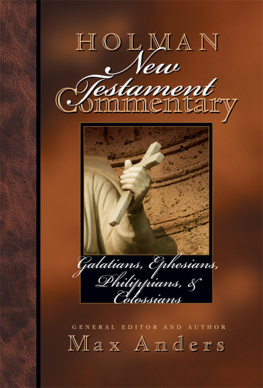
 www.trafford.com
www.trafford.com